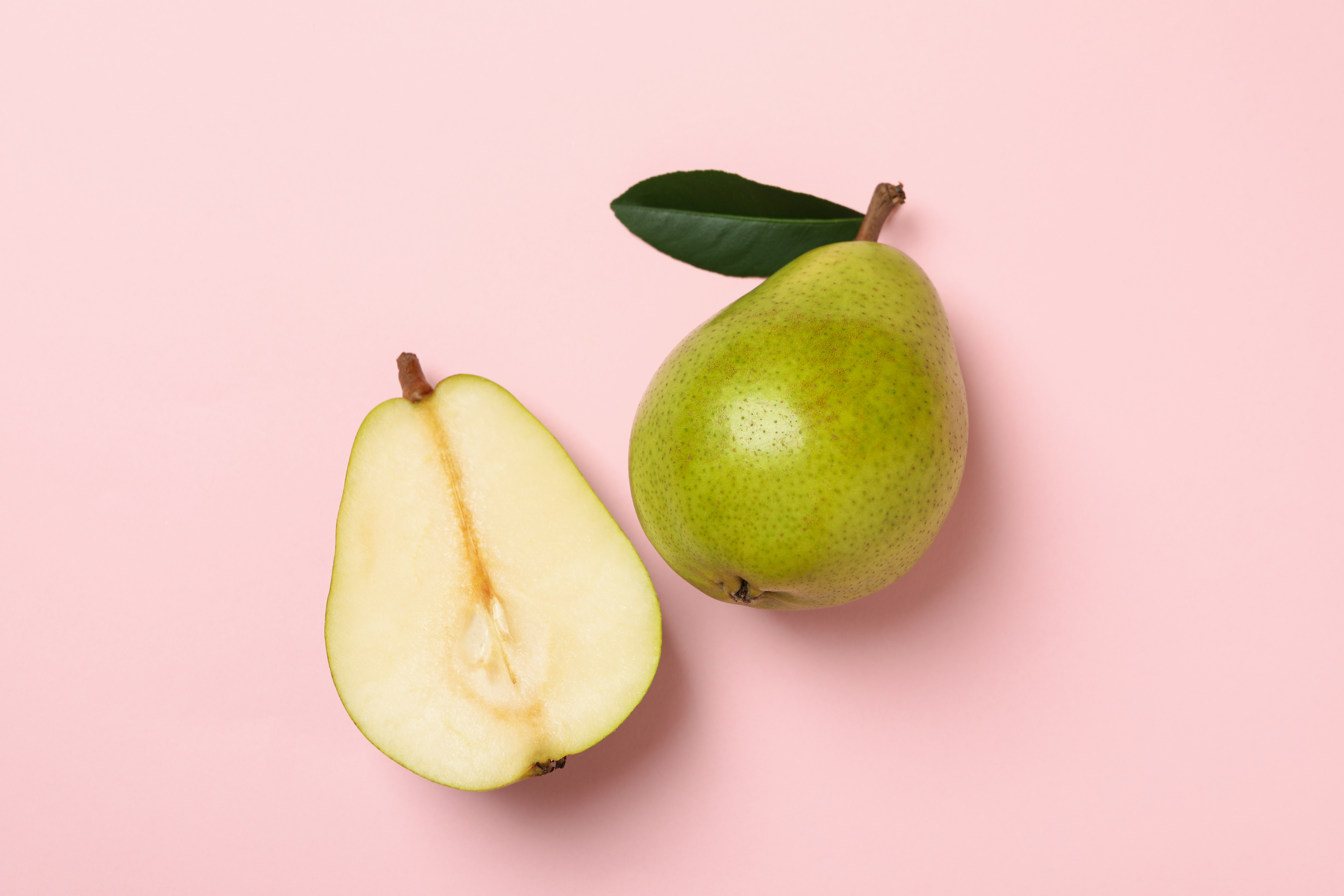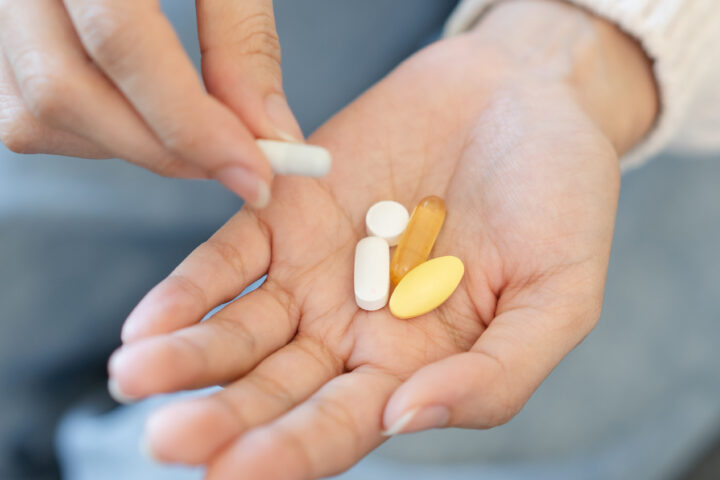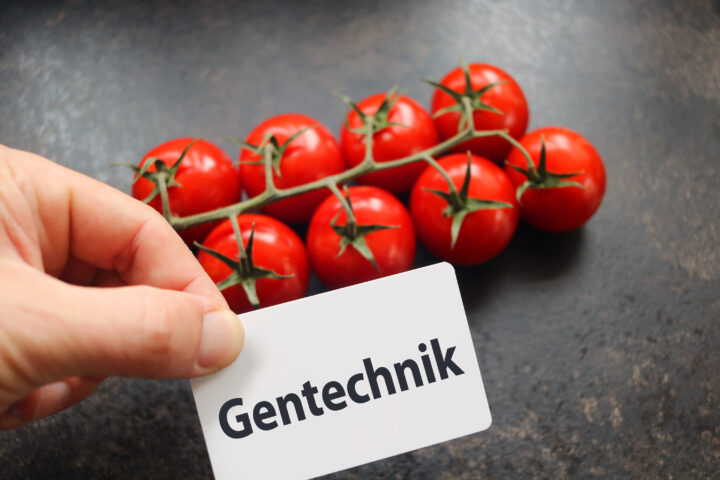
"Even with little processed food, you can cook yourself an unhealthy meal - and poison yourself fabulously"
Many people are confused by additives in food. But do thickeners and emulsifiers really harm us? Food chemist Daniel Wefers dispels prejudices - because some additives are actually beneficial for the body.
Wednesday, June 21, 2023
This interview was first published in the print edition of the "Neue Zürcher Zeitung" on 10 June 2023 under the title "The length of the ingredients list says nothing about the quality of a food product".

Mr Wefers, we eat them every day and all the time: additives. In my muesli this morning, for example, there was the emulsifier E322. Why do we need such things at all?
Additives have many different functions for food. There are, for example, thickeners, colourings, sweeteners and emulsifiers that make ingredients mix better. Additives help to make food easier to process, to achieve a better taste or appearance and to make it last longer. It's always about creating a technical advantage or a benefit for the consumer, it's even required by law.
You talk about benefits for the consumer - isn't it simply about the manufacturer producing as much saleable mass as possible with cheap ingredients?
Often it is indeed also about lowering the price. By using some additives, production becomes cheaper, the energy input is lower. However, this is not necessarily as negative for the consumer and overall as is often assumed, and many people do indeed want low prices. For example, the lower energy consumption can make a food more sustainable through additives. And because of the longer shelf life, not so much has to be thrown away, less waste is produced.
Don't thickeners like guar gum, for example, simply ensure that more water is bound in the food and the manufacturers can simply make more profit with less input?
Of course, one can say that water is simply cheap. But that is not necessarily a bad thing either, it also has advantages for the eater: for example, nothing is better at cutting calories than water. Many foods not only get a better texture through such processes, they also simply become less calorie-dense. In principle, more water does no harm.
Nevertheless, many people are unsettled by long lists of ingredients. All those E-numbers and chemical agents in the food - that can't actually be good. Or can it?
I can understand why people are put off by these ingredients, especially if they don't know what they are. But that is often not justified. And unfortunately it is also the zeitgeist that everything that has something to do with chemistry is associated with evil. There's chemistry in food! There's chemistry in cosmetics! Oh, God! Admittedly, that gets on my nerves.
You've said that on your Twitter account before. What do you associate chemistry with?
With life itself, of course. Everything is chemistry and is based on its fundamental processes. All molecules in unprocessed food are chemistry, we are chemistry. Additives only add to the existing chemistry. Moreover, additives are often isolated components of other foods that are added to a food. Basically, chemistry is something incredibly fascinating, everyone who has anything to do with it says so. (Laughs.) And people often forget that many ingredients do not necessarily say anything about the quality of a food and are also nothing modern. There are many traditional recipes where the length of the ingredient list is beyond good and evil.
Do you have an example?
I was recently in a restaurant that advertised a traditional sauce that had 46 ingredients in it. I thought to myself that if it had an ingredient list, it would certainly not look good and possibly unnatural to many people.
The professional nutrition societies actually recommend eating unprocessed and natural foods as much as possible.
In principle, that is correct, but what does that mean? Nature simply mixes natural foods for us. But that doesn't mean that there are few substances in it. Every food is a wild mixture of chemicals and molecules. An Australian chemist once took the trouble to compile lists of ingredients for vegetables or fruit that would be used to declare them if there had to be lists of ingredients. Suddenly it doesn't look so natural any more. In general, as I said before, this supposed contradiction between nature and chemistry does not exist.
So in your view, nutritionists are making a mistake when they advise against processed foods?
One should not demonise such foods per se. It just depends - even some highly processed foods can have a very good nutrient composition, but they don't have to. Of course, one should attach importance to fruit and vegetables. But there is nothing wrong with eating wholemeal bread, for example, which - like many baked goods today - has been industrially produced. It's just that the way it's made doesn't suddenly change the bread from recommendable to unhealthy. If one were to avoid absolutely all processed products, one would thereby cross foods off the list that make sense - for nutrition and the sustainable processing of food.
What, for example?
Preserved fruit and vegetables, wholemeal bread, spreads or even calorie-reduced products, which can indeed be beneficial in some cases and for some people. To reduce calories in products, some manufacturers nowadays use dietary fibres such as pectins or plant fibres. We know from dietary fibres that the vast majority of people in western countries eat far too little. What many people also fail to consider is that even with little processed food, it is possible to cook an unhealthy meal at home - and also to poison yourself fabulously.
So the length of the ingredient list is absolutely no indicator of a healthy or unhealthy food?
No. It depends on the nutrient composition. And especially when you think about the future, this approach of "natural" under all circumstances is not really effective. It makes sense to increase the range of our food choices, precisely because some foods are more sustainable than others. For example, very valuable and healthy products can be made from local food production residues. This makes better use of available raw materials and saves CO2. Also, some meat substitutes, for example from soy, can add to the diet - even though they are highly processed. In this sense, insisting on traditional, natural foods does not make sense.
Are there any additives that are not beneficial to health and that you avoid in your food, for example?
I like to read the back of the pack for professional reasons, but no: all additives are checked very carefully by several regulatory authorities. And if you eat a varied diet, it is unlikely that you will get too much of anything. By the way, many substances are being used less and less, simply because they have a bad reputation. Synthetic dyes, for example, which used to be popular in some sweets. But there is nothing to be said against even an occasional intake of these - especially in comparison to the many really harmful substances that affect us, for example, through our environment or even through supposedly natural foods.
Which natural foods can be harmful?
Beans. If you ate raw beans, it would not do you any good. The lectins in them would poison you. If beans were introduced as a new food today with the valid premise that they are poisonous raw, but cooked they are fine - there would be a big outcry. But we are used to it. And there are such substances in many foods. Cassia cinnamon, for example, contains toxic coumarin. But this shows quite well that we can also absorb and process harmful substances - it just depends on the quantity. Coffee is also a good example.
Is coffee so unhealthy?
Coffee contains some substances that are considered potentially carcinogenic, such as acrylamide and furan. And yet we don't see coffee drinkers living shorter lives - rather the opposite.
As a chemical enthusiast, do you actually have a favourite additive?
Yes, actually I do. Because we are researching thickening agents, it is mainly these. For example, I find xanthan gum exciting: it is formed by bacteria that are pathogens for plants and has very special properties. It makes sauces viscous and ensures, for example, that herbs do not sink. It also shows that people have become much more sensitive: although it has been proven not to be harmful, I am not sure whether it would still be approved as a pathogen today with this origin.
Daniel Wefers is Professor of Food Chemistry at the University of Halle.
Kindly note:
We, a non-native editorial team value clear and faultless communication. At times we have to prioritize speed over perfection, utilizing tools, that are still learning.
We are deepL sorry for any observed stylistic or spelling errors.
Related articles

Residue is not the same as residue
Painkillers like Voltaren are a blessing for us – yet in our rivers they can harm fish. If these were crop protection products, calls for bans would be immediate. It becomes clear that we are applying double standards.

ARTE documentary: Genetic engineering in organic farming?
The ARTE documentary “Genetic engineering in organic farming?” examines key controversial questions of modern agriculture: Is the general exclusion of new breeding technologies still up to date? Can the resistance of organic farming be justified scientifically?

The Great Suffering of Farmers
Fire blight, Japanese beetles, or grapevine yellows – farmers in Valais, too, are increasingly feeling helpless in the face of the threats posed by nature. More and more often, they lack the means to effectively protect their crops. This makes it all the more important for the Federal Council to place a pragmatic balancing of interests at the forefront when setting threshold values.

'Tomatoes on your eyes'
The submitted “Food Protection Initiative” calls for “GMO-free food.” Leaving aside this illusory demand, its adoption would mean more bureaucracy, more trade barriers, and less innovation. The Swiss Farmers’ Union describes the proposal as “unnecessary” and warns of a setback to the goal of achieving an even more sustainable agriculture.

